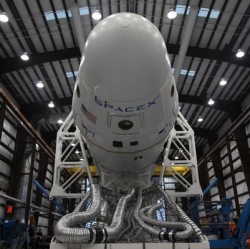
Most wealthy individuals leave their money either to heirs or to a charitable foundation. But Page thinks that Musk could do more good with the money. Page mentioned Musk’s idea of "backing up humanity" by creating a civilization on Mars as an example of a way to improve the world.
In retrospect, now that he’s founding Alphabet as a way to keep researching big moonshot ideas, Page’s comments seem less like idle musings and more like a coherent theory of how to best use his money to change the world: not by giving it away, but by investing it in projects he thinks could be truly revolutionary. Page’s career is premised on the idea that advancing technology through a for-profit company can meaningfully improve people’s lives, and indeed, there’s a decent argument to be made that, historically, profit-motivated technical advances have helped people more than charity has.
If you look at the major forces of progress in world history, philanthropy isn’t high up there. Scientific research and technological innovation, however, are. The most important force in lifting people out of extreme poverty has, at least since the Industrial Revolution, been economic growth, which is boosted by scientific discovery but not by charity. Improvements in life expectancy have been driven both by increased wealth and by medical advances, which are often funded and backed by pharmaceutical companies and other for-profit actors.
Even major charitable success stories stand on the backs of technological and medical innovation. The eradication of smallpox was a major humanitarian undertaking, but one that required the invention of readily deployable vaccines. The Green Revolution, which dramatically increased crop yields in Mexico, India, and elsewhere, was sponsored by the Ford and Rockefeller Foundations, but worked by spreading existing technological improvements in farming to poor countries.
Page said as much in his interview, arguing that using his money to influence and benefit his own company was the best method he had for doing good. "You’re working because you want to change the world. You want to make it better. Why isn’t the company that you work for worthy not just of your time but your money as well?" he asked.
"I mean, but we don’t have a concept of that. That’s not how we think about companies, and I think it’s sad, because companies are most of our effort. They’re where most of people’s time is, where a lot of the money is, and so I think I’d like for us to help out more than we are."
Page wants Google to be doing more to aggressively change the world. And Alphabet is set up to enable just that.
